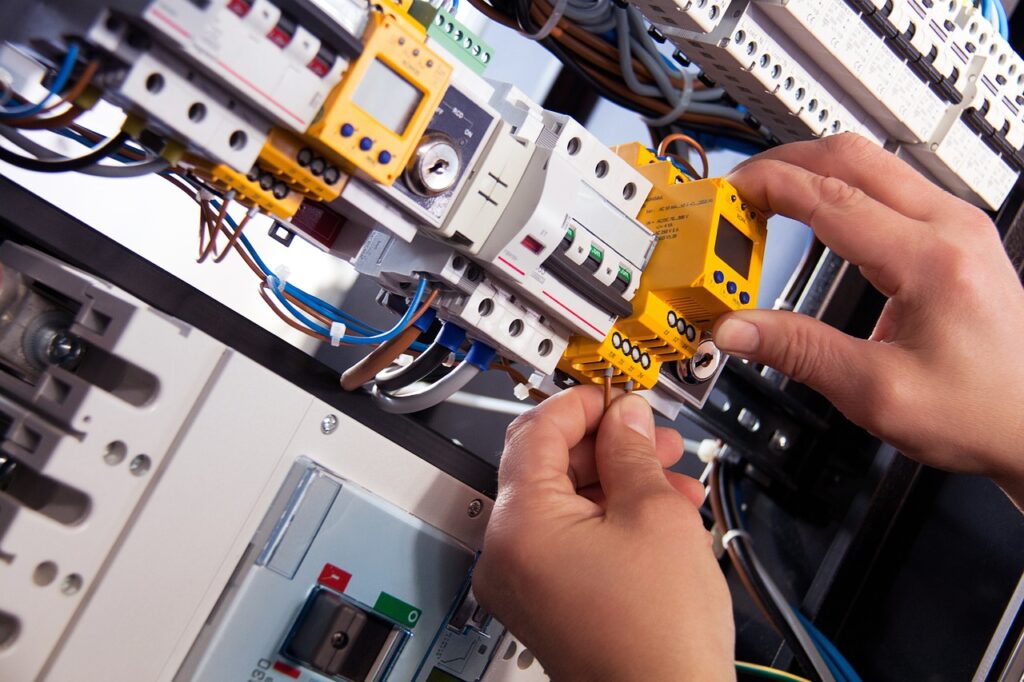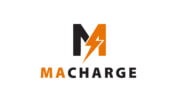
Are you considering purchasing an electric vehicle (EV)? Or have you already made the leap to sustainable transportation? Congratulations! EV’s are so much fun! EVs are becoming increasingly popular due to their eco-friendly nature and cost-saving benefits. The cost-saving benefits after acquisition are very noticeable. A crucial aspect to consider when owning an EV is the installation of a home EV charger. To ensure a safe and efficient charging experience, it’s essential to determine the right size breaker for your EV charger. The breaker is indispensable. Compare it the breaks on your vehicle. They are installed for safety reason. MaCharge will guide you through the process and answer your burning question we get asked often: “What size breaker do I need for an EV charger?”
Understanding the Basics
Before delving into the technicalities, let’s start with the basics. The breaker is a protective device that automatically shuts off the electrical circuit in case of an overload or short circuit, preventing electrical fires and other hazards. To determine the appropriate breaker size for your EV charger, you need to consider factors such as the charging speed, the maximum current the charger can handle, and the capacity of your home’s electrical system.
Evaluating Charging Speeds
EV chargers come in different power ratings measured in amps (A). The most common levels of charging for home use are Level 1 (120V) and Level 2 (240V). Level 1 chargers are slow, providing approximately 5 kilometers of range per hour of charging, while Level 2 chargers are significantly faster, offering around 48 kilometers of range per hour. To ensure you have an optimal charging experience, a Level 2 EV charger is recommended. Most wall outlets that people are using are not meant to charge a car for 20 plus hours. A Level 2 charger significantly reduces charging time, allowing you to enjoy your EV to its fullest potential. Let’s determine the breaker size for a Level 2 EV charger.
Calculating Breaker Size
The breaker size for your EV charger depends on the charging speed you desire, as well as the maximum current the charger can handle. Most Level 2 chargers have power ratings ranging from 16 amps to 40 amps. Let’s explore how to determine the appropriate breaker size using these values. The most common breakers we install 40-Amp and 50-Amp breakers. We routinely install 48-Amp breakers but we find it “overkill” in many situations.
32 Amps: If your EV charger is rated at 32 amps, you should choose a 40-amp breaker. This allows for a sufficient safety margin and ensures your breaker won’t trip during charging.
40 Amps: For a 40-amp EV charger, you’ll need a 50-amp breaker. Again, this provides a safety buffer and avoids unnecessary breaker trips.
It’s important to note that the Electrical Code stipulates that a continuous load should not exceed 80% of the circuit’s maximum capacity. Considering this, a 50-amp circuit is the minimum requirement for a 40-amp EV charger.
Seeking Professional Electrical Advice
While the above guidelines serve as a general rule of thumb, it’s always a must to consult a qualified electrician or an EV installer before making any decisions. The purpose of this blog is that you can understand what your electrician is doing a little better. Your electrician will assess your home’s electrical situation and provide expert advice tailored to your specific requirements. A professional electrician can evaluate the capacity of your electrical panel and make recommendations based on local electrical codes and safety regulations.
Popular EV Charger Brands
When it comes to purchasing an EV charger, you’ll find a wide range of options available. Some of the popular brands known for their reliability and quality include:
Tesla: Tesla offers a range of charging solutions, including the renowned Tesla Wall Connector, designed specifically for Tesla vehicles.
ChargePoint: ChargePoint is one of the largest EV charging networks globally and provides a variety of home charging solutions with innovative features.
Flo: Flo offers intelligent charging stations that are sleek, durable, and compatible with various EV models.
Juicebox: Juicebox chargers cater to both residential and commercial needs, providing high-quality charging performance and smart charging capabilities.
Wallbox: Wallbox offers stylish and efficient charging solutions for homes and businesses, combining cutting-edge technology with user-friendly features.
FLO: FLO provides a range of smart charging stations suitable for residential and commercial use, delivering fast and reliable charging for your EV.
Each of these brands offers different charger models with varying power ratings, allowing you to choose the one that best suits your needs. Make sure to visit their websites to explore their product offerings and find the perfect charger for your EV. MaCharge supplies each of these charging station brands, amongst others.
Importance of Professional Installation
Installing an EV charger requires technical expertise and knowledge of electrical systems. It’s crucial to hire a professional electrician or an EV installation company like MaCharge to ensure a safe installation. They will assess your electrical infrastructure, handle any necessary upgrades, and install the appropriate breaker size for your EV charger. Professional installation not only guarantees your safety but also helps avoid any potential damage to your electrical system.
A Final Word on What Size Breaker Do I Need for an EV Charger
Choosing the right breaker size for your EV charger is vital to ensure safe and efficient charging for your electric vehicle. By considering factors such as charging speed, maximum current, and professional advice, you can determine the appropriate breaker size and enjoy the benefits of convenient and fast EV charging at home. Always consult with a qualified electrician or an EV installation company like MaCharge. They have the expertise to assess your electrical system and provide guidance on selecting the right breaker size for your specific setup. Investing in an EV charger and proper installation is an essential step towards embracing sustainable transportation and reducing your carbon footprint.
Disclaimer: The information provided in this blog post is for general informational purposes only and should not be considered as professional advice. Always consult with a qualified electrician or an EV installation company for specific recommendations tailored to your situation.
